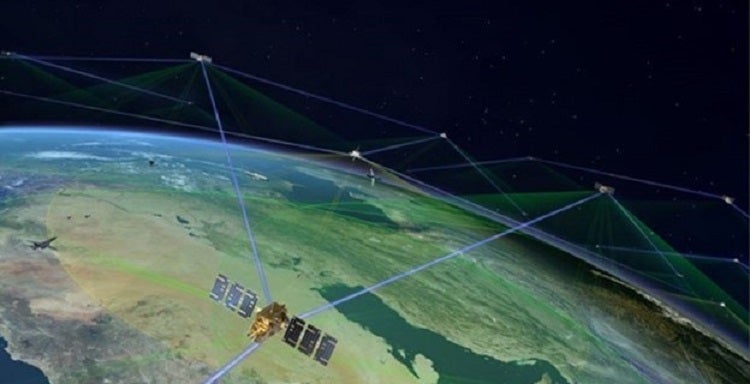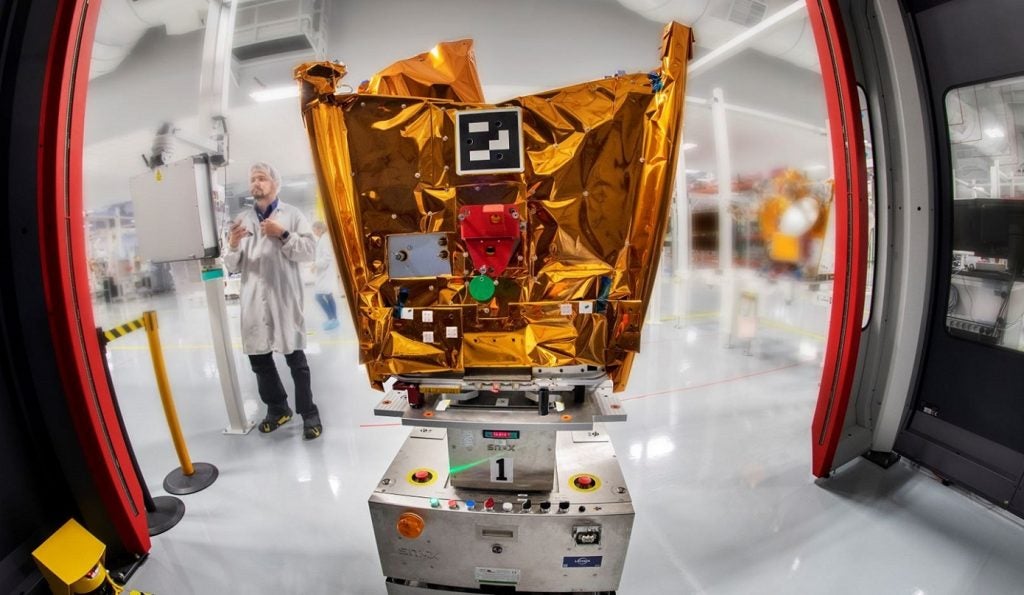Airbus US Space & Defense recently completed a deal with Eutelsat OneWeb to purchase its 50% share of the Airbus OneWeb Satellites (AOS) joint venture at the end of Janaury 2024.
The company is now the sole owner of AOS and the satellite manufacturing facility in Merritt Island, Florida.
“The new structure is expected to provide maximum efficiency and increased competitiveness for institutional and national security space customers,” the company said in a press release at the time.
It certainly marks a step change in the global defence prime’s capacity, but what about their plans for the UK space economy?
In an exclusive interview with Airforce Technology just after the acquisition, the Chairman of Airbus Defence and Space UK, Ben Bridge alongside his colleague and technical specialist Martin Rowse, the Campaign Director of Skynet, shed some light on the company’s plans to advance UK defence in space with the help of US industry.

Q. How is Airbus cultivating the UK’s space sovereignty?
Bridge: You know, the US is spending a huge amount of money on space. It isn’t known how much China is spending but we have to assume that they are doing something similar and the US is certainly spending an awful lot more in a month than the UK will probably be able to spend in many years.
So it would be as a strong ally of the US that would be an entirely appropriate, reasonable and correct approach, it would be crazy not to to benefit from that.
So what we’re looking to do in our approach on Skynet, and indeed in our military capabilities generally, with the UK is for the best of both worlds. To make sure that we sustain and maintain and consolidate the UK sovereign capability, which we currently have, we design satellites, we build satellites, we launch them, and that sovereign capability brings with it independence of operation, but also the ability to change what you have.
So there’s lots of benefits to having that. In addition, of course, are the commercial benefits of all the people that are employed, many of which are very highly skilled, highly paid in factories all around the country.

Q. What changes in technology does Airbus face in developing Skynet?
Rowse: Skynet is a family of military communications satellites, currently operated for the UK Ministry of Defence, that provides strategic communication services to the UK Armed Forces and allies. ‘Skynet 5’ is the most recent generation of this family.
The Skynet Enduring Capability (SKEC) programme will deliver the next era of satellite communications (SATCOM) to the MoD using new space assets and a way to monitor and control them.
We ran the whole system for 20 years which gave us a unique insight into how the military want to operate their capability – but I think that capability is changing.
If you look at what’s happening around the world, if you look at military capability, and technology more generally, we’re moving from when Skynet started 54 years ago it was very much people talking to each other. Now we’re in a world of machines talking to each other and transferring huge levels of data. We are increasing the level of autonomy in our systems, increasing levels of robotics.
When it was first in place when we first saw it launched the first satellites for Skynet, fifth generation, it was in the analogue age. We literally had to take it to an IP based digital network throughout that system.
Now the challenge really is taken to the next level, what does the next generation capability look like? What does the military not only want now, what do they want by the end of this decade? What do they want for the next 20 years? And that’s the real challenge that we have, taking what we understood from running the scoring system, and then extrapolating that into into a future phase.

Q. What kind of work are you pursuing with Northrop Grumman?
Rowse: What we’ve been doing with Northrop Grumman in the US with the Transport Layer programme is developing about 60 of our ARROW 450 platforms for exactly that purpose. So they’ll be laser connected, they’ll be providing what’s called a ‘transport layer’ – so a kind of broadband layer that sits around the Earth, transporting information around the world.
Laser links will absolutely [serve as an advancement]. You know, the F-35 Lightning II creates gigabytes of data per hour. Once you start getting those huge levels of data, you really need laser communications to get it from point to point.
I think the capability as a technology is starting to catch up with us. The use of data, the demand of data is now starting to catch up with us.
There’s two kinds of threat… there’s threats from the ground, meaning we need a kind of anti jamming capability. So making sure we’ve got the best digital antennas, the best really active antennas to make sure that we can combat that type of anti jam threat, whether it’s laser or spoofing or other elements.
But then there’s also the in-space activity. And this again is part of our discussions with Northrop Grumman, it’s really about space domain awareness. So making sure we understand the environment that the satellite is operating in. What’s really important is to be able to act, whether that’s dodging, or some other form of trying to stop the attack, but really developing capability in space to make sure that those satellites stay safe.
Space is becoming increasingly contested and congested and we’re continuing to look at how to how to manage that, you know, both in Europe, in the UK, but then also looking at how do we take the best from the US capability, to take all the capability they’re developing and bringing that together.









